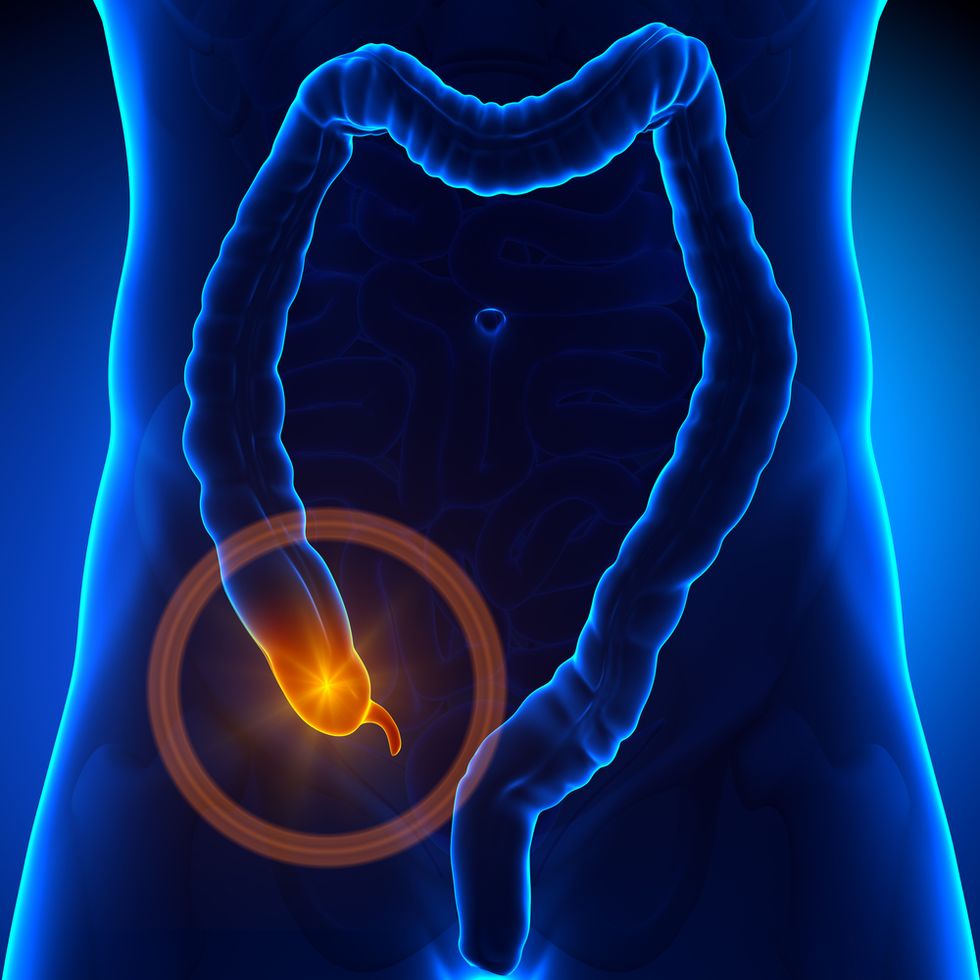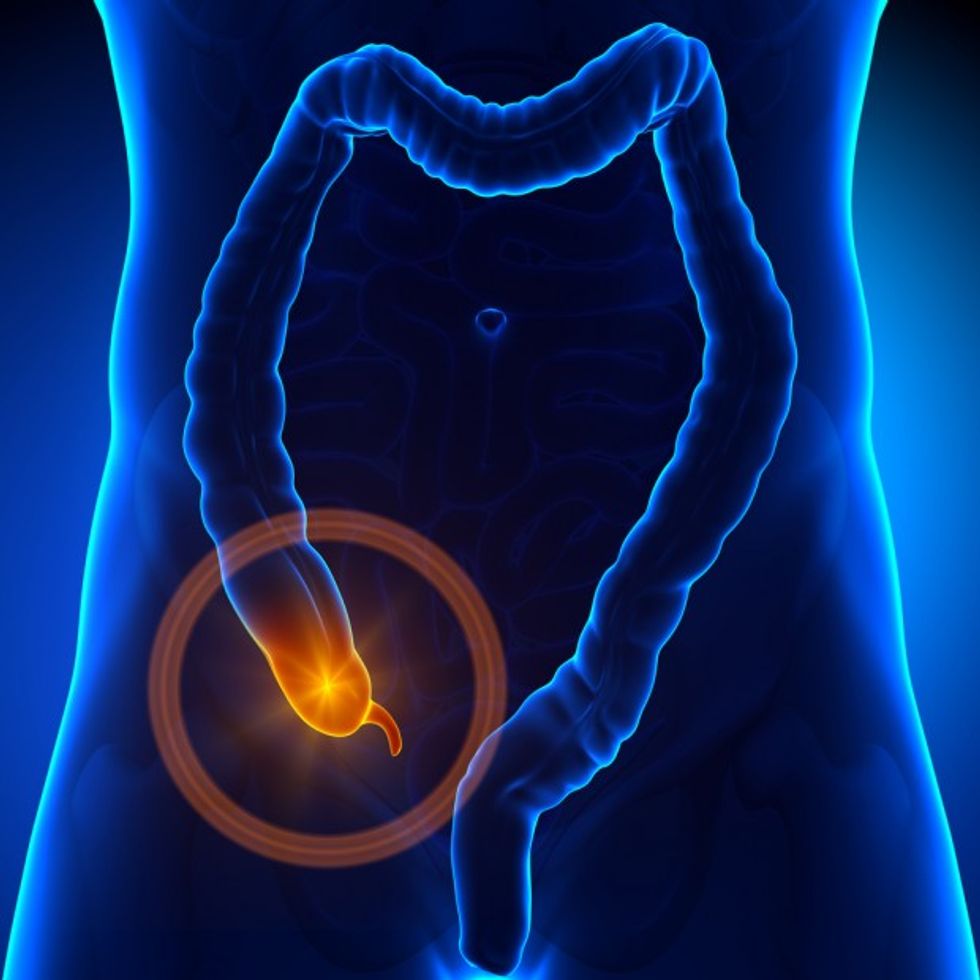
© 2024 Blaze Media LLC. All rights reserved.
Scientists Argue Appendix Might Not Be ‘Irrelevant’ to Our Health, Propose This as the Organ’s Current Function
December 01, 2015
"Popular belief tells us the appendix is a liability."
The appendix has been dubbed a vestigial organ, thought to no longer perform any necessary function, but new research is supporting a previously proposed theory that it might still have a relevant purpose in the human body today.
"Popular belief tells us the appendix is a liability," Gabrielle Belz with Melbourne's Walter and Eliza Hall Institute said in a statement. "Its removal is one of the most common surgical procedures in Australia, with more than 70,000 operations each year. However, we may wish to rethink whether the appendix is so irrelevant for our health."
In the U.S. appendicitis will affect over 5 percent of the population, the National Institutes of Health stated.
Research by Belz and Eric Vivier with the the Centre d'Immunologie de Marseille-Luminy in France found that the appendix might play a role in helping maintain one's immune system with a good microbiome.
Their study published in the journal Nature Immunology explained that a specific type of immune cell called innate lymphoid cells help "control the composition of the microbiota and gut immune responses." These cells help protect against bacterial infections in people with weak immune systems, the researchers found.
And the appendix, Belz said, with protection from infection by ILCs might then "reseed 'good' bacteria within the microbiome — or community of bacteria — in the body."
"A balanced microbiome is essential for recovery from bacterial threats to gut health, such as food poisoning," she explained.
Australia's Herald Sun described the role between the ILCs, the appendix and good gut health as follows:
The new research, led by Prof Belz and leading French immunologist Prof Eric Vivier, has shown that innate lymphoid cells (ILCs) shield the appendix from harmful bacteria.This allows the small organ to act as a safe haven for “good” bacteria, which could then “reseed” the intestines and restore the health of the digestive system.
Scientists at Duke University Medical Center proposed a similar theory several years ago as well:
Drawing upon a series of observations and experiments, Duke University Medical Center investigators postulate that the beneficial bacteria in the appendix that aid digestion can ride out a bout of diarrhea that completely evacuates the intestines and emerge afterward to repopulate the gut. Their theory appears online in the Journal of Theoretical Biology."While there is no smoking gun, the abundance of circumstantial evidence makes a strong case for the role of the appendix as a place where the good bacteria can live safe and undisturbed until they are needed," said William Parker, PhD, assistant professor of experimental surgery, who conducted the analysis in collaboration with R. Randal Bollinger, MD, PhD, Duke professor emeritus in general surgery.
According to the Mayo Clinic, appendicitis is caused by a "blockage in the lining of the appendix that results in infection is the likely cause of appendicitis." If this infection causes significant inflammation, the organ could rupture, creating a potentially life-threatening situation.
Want to leave a tip?
We answer to you. Help keep our content free of advertisers and big tech censorship by leaving a tip today.
Want to join the conversation?
Already a subscriber?
more stories
Sign up for the Blaze newsletter
By signing up, you agree to our Privacy Policy and Terms of Use, and agree to receive content that may sometimes include advertisements. You may opt out at any time.
© 2024 Blaze Media LLC. All rights reserved.
Get the stories that matter most delivered directly to your inbox.
By signing up, you agree to our Privacy Policy and Terms of Use, and agree to receive content that may sometimes include advertisements. You may opt out at any time.



